Friend of the parish John Lucas (from ESC Gold) loves a good National Final, but he’s taken a step back from all the fun and games to ask a simple question? What makes a National Final a good National Final? Putting aside the simple answer (just add Winny Puuh), Lucas has decided to find out…
For the serious Eurovision Song Contest fan, following the various National Finals that take place in the months preceding the Song Contest are as integral to the experience as the Grand Final itself. At time of writing twenty-eight of the competing nations for 2015 are choosing their entries via some form of publicly voted national selection.
The best of these shows provide excellent entertainment in their own right, and offer an excellent platform for strong Eurovision entries to be selected. But what goes into creating a great National Final, and what can the countries with less successful selection processes learn from the big hitters?
Establish The Brand
Top of the pile when it comes to Eurovision National Finals for many is Sweden’s Melodifestivalen. A multi-arena event in its own right, it is regularly the most-watched entertainment programme of the Swedish year. The first heat this year saw 3.4 million people – over a third of the country’s entire population – tuning in to watch a mixture of established pop stars and new artists compete for a “Direct To Friends” ticket to SVT’s final, hosted in Stockholm’s 65,000 capacity Friends Arena.
Such is Melodifestivalen’s popularity that it transcends the status of Eurovision National Finals and stands as a firmly established pop culture institution in its own right. The same could be said for Italy’s Sanremo contest (which pre-dates Eurovision, and was used as a template for the first show by Marcel Bezencon). Sanremo itself stood entirely apart from the Contest during the period from 1998-2010 when Italy stopped participating in the Song Contest altogether.
The longevity of these contests goes a long way towards providing a sense of prestige that less established National Finals just can’t match. The mix of newcomers and well-known artists keeps the standard of music and performance at a high level, and they have their own sense of history that attracts dedicated fans both nationally and around the globe.
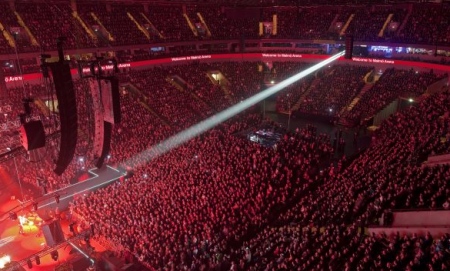
Malmo Arena during Melodifestivalen
Fresh Ingredients Help The Mix
Having an established brand can be a major boon for a National Final, but it’s important not to become too complacent. TV formats by their nature need to be refreshed every few years, otherwise viewer fatigue can kick in, ratings fall and the quality of material falls with it.
The best National Finals strike a balance between staying true to a successful formula and introducing new elements – whether it’s international juries, a revolving door approach to presenters, or incorporating new technology such as in-app voting and the second-screen experience. Not every change will work, but they will go a long way towards ensuring a show doesn’t become stale and dated.
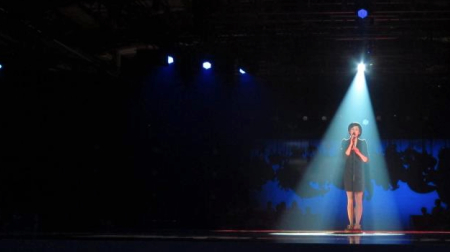
Mix it up with a ballad from a singer called Chiara (Switzerland NF December 2012)
Remember What You Are Looking For
In order to turn out a strong entry to the Eurovision Song Contest, a National Final needs to favour strong, impactful performances that can make a connection during a very small amount of screen time. In other words, you want a shower – not a grower.
Similarly, unlike shows like The X Factor, the Eurovision audience is unlikely to be aware of the performer’s back-story, no matter how endearing it might be to viewers at home. The most important elements are that the song is good, and the performer can sell it appropriately during the crucial three minutes. Knowing the song is about a singer’s mother, or they managed to defeat a big name in the German music industry means nothing when May arrives.
When National Finals become too convoluted, drawn out or personality driven, there’s a danger that viewers will start voting for the wrong reasons. We say this last year in countries like Belgium and Lithuania, where the viewers were asked to focus on too many disparate elements over a lengthy selection process that ignored the importance of the first-listen effect. This resulted in weak, ill-conceived entries that made no impact on Eurovision voters.
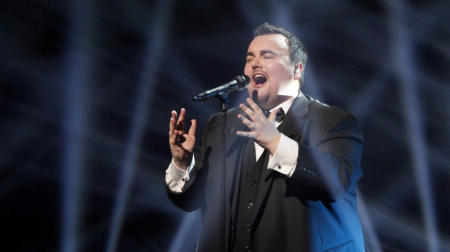
Mother, I just killed a man (picture: Bart Musschoot (VRT))
Make The Selection Relevant
You don’t need to produce a big-budget extravaganza to produce a high quality National Final. What you do need is to engage your audience so that they can feel passionate about what they’re watching and voting for.
After Estonia reached rock-bottom in 2008, they scrapped its Eurolaul selection and retooled it as Eesti Laul. As the name suggests, this new format put a much stronger focus on finding a great Estonian song, rather than a great Eurovision song. This may seem like a contradiction of the previous point, but actually the misconception of what constitutes ‘a good song for Eurovision’ has been behind any number of the most wrongheaded selections in the Contest’s history (others are simply laid at the door of Pete Waterman). The first winner of Eesti Laul was a haunting electro-classical crossover track uncompromisingly performed in the national tongue.
It finished sixth, the best Estonian showing in almost a decade.
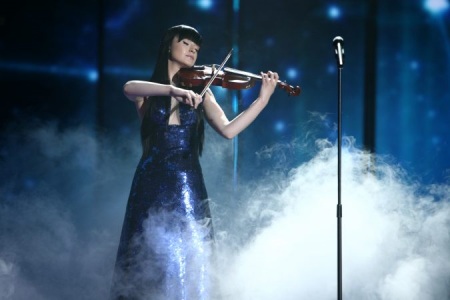
Estonia 2008, Urban Symphony
Another tactic is to do what countries like Romania do and embrace existing hits as well as Eurovision-tailored songs. If your National Final is scheduled for February or March, you can approach almost any national chart hit that was first unveiled after the previous September. These songs are more likely to be accurate reflections of what’s going on in the national music scene, and they already have a proven level of mass appeal that a song written specifically to be performed at Eurovision may lack.
Cut Your Losses Quickly And Ruthlessly
The problem with a stale National Final is that it tends to be self-perpetuating. Countries like Ireland and Switzerland have done very little to update their National Finals in recent years, be it through inertia or lack of finance to investigate other options – and their results have suffered as a result. Neither country has any shortage of local talent, but these worn out formats simply don’t give them any incentive to put themselves forward.
In a Catch-22 situation wherein poor results at the Eurovision Song Contest discourage high-calibre acts from entering the national selection, sometimes the best solution is to cut your losses for a while. No songwriter wants to potentially throw away a hard-earned song on a poorly regarded National Final, and few major acts will be willing to face the potential humiliation of losing on home turf.
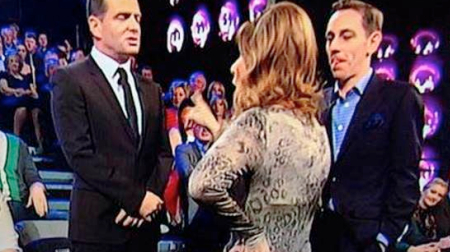
Has anyone asked what Ryan Tubridy tongue is up to? (picture: RTE The Late Late Show)
This year’s hosts Austria are a good example of how countries stuck in a rut of mediocrity can turn things around. By scrapping their National Finals and internally selecting Conchita Wurst, the Austrian team gave the singer more time to come up with a strong entry, and offered potential songwriters the enticement of guaranteed Eurovision exposure if their song was selected.
The Netherlands enjoyed a similar turnaround in fortunes by giving their most popular recording artists an opportunity to compete on their own terms. The United Kingdom may not have enjoyed a significant upturn in results of late, but arguably the quality of the entries has markedly improved since they similarly retired their worn-out National Final formats.
All of this doesn’t necessarily mean that underperforming countries need to remove their domestic audience from the process indefinitely. This year Austria are taking advantage of the renewed local interest to trial a new National Final format, which will hopefully raise the standard and set them on the right path for success in the future. It’s an example that many other countries would do well to learn from.
John P Lucas is a freelance journalist and Eurovision fan. In addition to running his own dedicated Eurovision fansite, he is a frequent contributor to The Guardian and has appeared as a Eurovision pundit on BBC Radio 4’s Today Programme.








